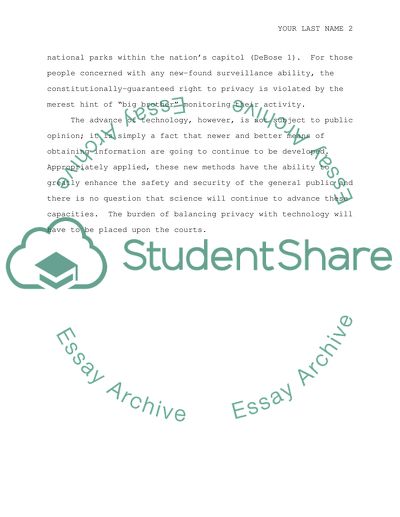Privacy, Security in the 21st Century Essay Example | Topics and Well Written Essays - 500 words. Retrieved from https://studentshare.org/miscellaneous/1509848-privacy-security-in-the-21st-century
Privacy, Security in the 21st Century Essay Example | Topics and Well Written Essays - 500 Words. https://studentshare.org/miscellaneous/1509848-privacy-security-in-the-21st-century.


